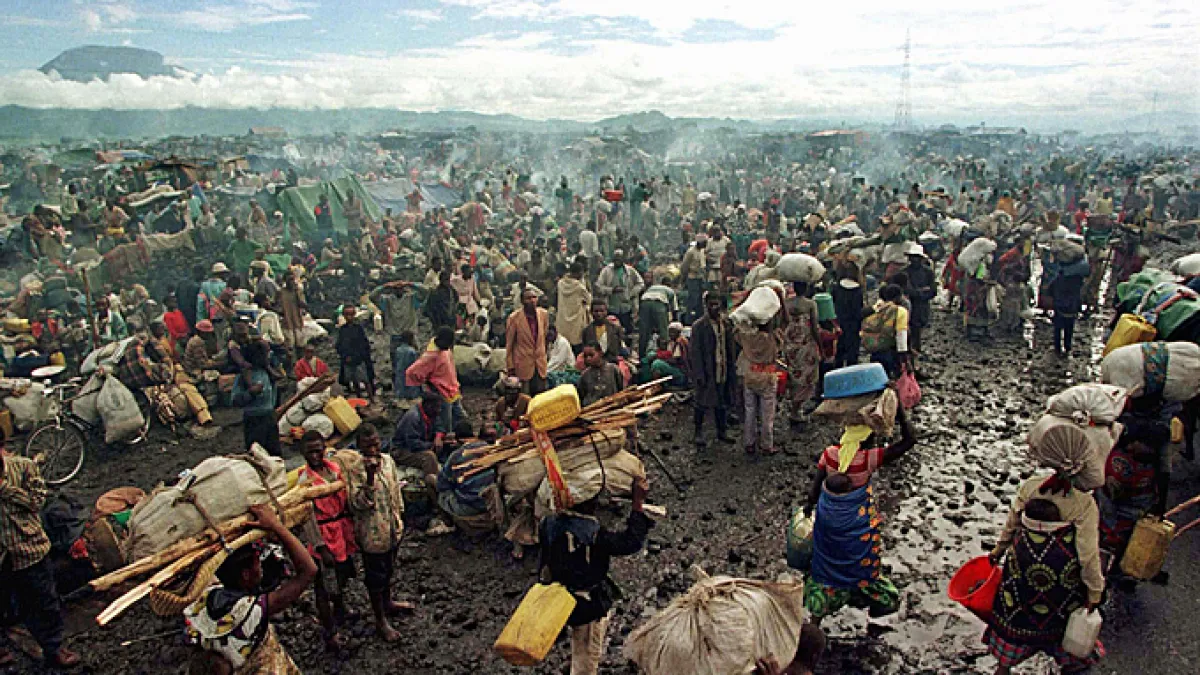
Hundreds of Rwandan refugees who fled to eastern Congo after the 1994 genocide began returning home Saturday under a United Nations-backed repatriation effort.
Most returnees were women and children, with 360 crossing the border by buses provided by Rwandan authorities. They were escorted by the UN High Commissioner for Refugees and aid group Save the Children.
Local officials said the goal is to repatriate 2,000 refugees in the coming weeks as stability slowly returns to the region.
“We are happy to welcome our compatriots. They are a valuable workforce for the country’s development,” said Prosper Mulindwa, mayor of Rubavu, at a brief ceremony at the border crossing.
After arrival, returnees were taken to a transit center to receive emergency aid and support for reintegration into Rwandan society.
These refugees are largely descendants of Hutus who fled after the 1994 genocide, which claimed nearly one million Tutsis and moderate Hutus. Many had remained in Congo despite earlier repatriation waves in the late 1990s.
The mineral-rich eastern Congo has suffered decades of conflict involving multiple armed groups, including the Rwandan-backed M23 rebels. This recent violence has deepened the humanitarian crisis in the region.
United Nations experts report that about 4,000 Rwandan troops support the M23 rebels, complicating the conflict further.
Among the returnees is Nyirakajumba Twizere, born in 1996 in Congo, who expressed hope and pride. “I never thought this day would come,” he said. “I’m finally going back to the land of my ancestors.”
The repatriation follows a tripartite agreement between Rwanda, Congo, and UNHCR, which has facilitated the return of over 101,000 refugees, including 1,500 this year alone.
